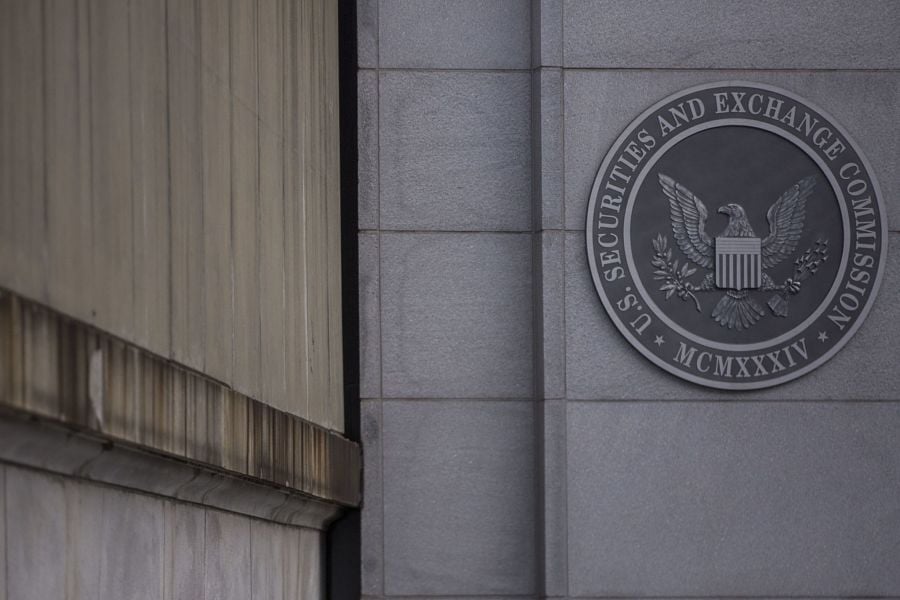

Fiduciary advocates are pushing the Securities and Exchange Commission to overhaul a document that is intended to help investors select a financial adviser because they say it doesn't clarify the differences between investment advisers and brokers.
The Institute for the Fiduciary Standard on Tuesday proposed a redesigned customer relationship disclosure, known as Form CRS, that provides a side-by-side comparison of advisers and brokers. It emphasizes that advisers “must meet the highest legal standard, a fiduciary standard,” while brokers “are not required to put your interests first.”
The organization also proposed a document — containing information about expense ratios, commissions and other costs — that investors would receive when a broker makes a recommendation about an investment product.
“Form CRS is a wide, generally accepted failure,” Knut Rostad, president of the Institute for the Fiduciary Standard, told reporters. “Fixing Form CRS should be at the top [of the SEC’s] agenda.”
Form CRS was part of the regulatory package the SEC approved in 2019 that revolved around Regulation Best Interest, the broker investment advice standard. Under Reg BI, brokers are prohibited from putting their compensation concerns ahead of their customers’ interests.
Reg BI went into force last June. Since then, Form CRS has won few fans.
Many observers criticize the document — which outlines fees, services and the background of a financial adviser — as dense and ineffective. In a white paper released on Tuesday, the institute asserted Form CRS does nothing to alleviate investor confusion about investment advice professionals.
Reg BI was the signature rule promulgated by the SEC under former Chairman Jay Clayton during the Trump administration. During the Biden administration, the commission has a 3-2 Democratic majority with new Chairman Gary Gensler at the helm.
In an appearance at an online congressional hearing last month, Gensler seemed to indicate he was not inclined to reopen the Reg BI package to a new round of rulemaking. Rather, he would seek to ensure brokers act in a customer’s best interests through enforcement, examinations and guidance related to Reg BI.
It’s not clear whether overhauling Form CRS would require new rulemaking.
“This is a definite departure from what the former commission did … but there is a great deal of reason to go back and re-look at the premises, the assumptions and the basis for the CRS that we’ve seen so far,” Rostad said. “The current forms simply do not work.”
Phyllis Borzi, the architect of the Department of Labor’s fiduciary rule during the Obama administration, said the SEC should provide “clear, plain English” disclosures and praised the institute’s proposals.
“They are a terrific first step because that’s what people need if they’re going to differentiate between fiduciary and non-fiduciary conduct,” Borzi, a former assistant secretary of labor, told reporters.
Clayton often said that the key question investors must ask financial professionals is how much of their money is going to work for them and how much will be paid to the adviser or broker. He asserted Reg BI and Form CRS helped them make such queries.
But Deborah Bosley, a co-author of the institute’s white paper, said Form CRS falls short of providing a road map for investors.
“I don’t think that the current form gets at the heart of one of the problems that the public has, which is how do I determine who I give my money to and who they’re really going to care about — me or themselves,” Bosley, principal of the Plain Language Group, told reporters.
The sharp delineation between advisers and brokers recommended by the institute would generate a firestorm in the brokerage industry should the SEC pursue a rewrite of Form CRS. Most financial firms backed Reg BI and dispute that investors receive a higher standard of care from investment advisers.
Rostad is confident the agency would hold its ground.
“You have to go back 25 years, frankly, before you can find a commission that we have reason to believe is as attuned to investor protection,” Rostad said. “Frankly, it is the three Democratic commissioners.”

Former Northwestern Mutual advisors join firm for independence.

Executives from LPL Financial, Cresset Partners hired for key roles.

Geopolitical tension has been managed well by the markets.

December cut is still a possiblity.

Canada, China among nations to react to president-elect's comments.
Streamline your outreach with Aidentified's AI-driven solutions
This season’s market volatility: Positioning for rate relief, income growth and the AI rebound
